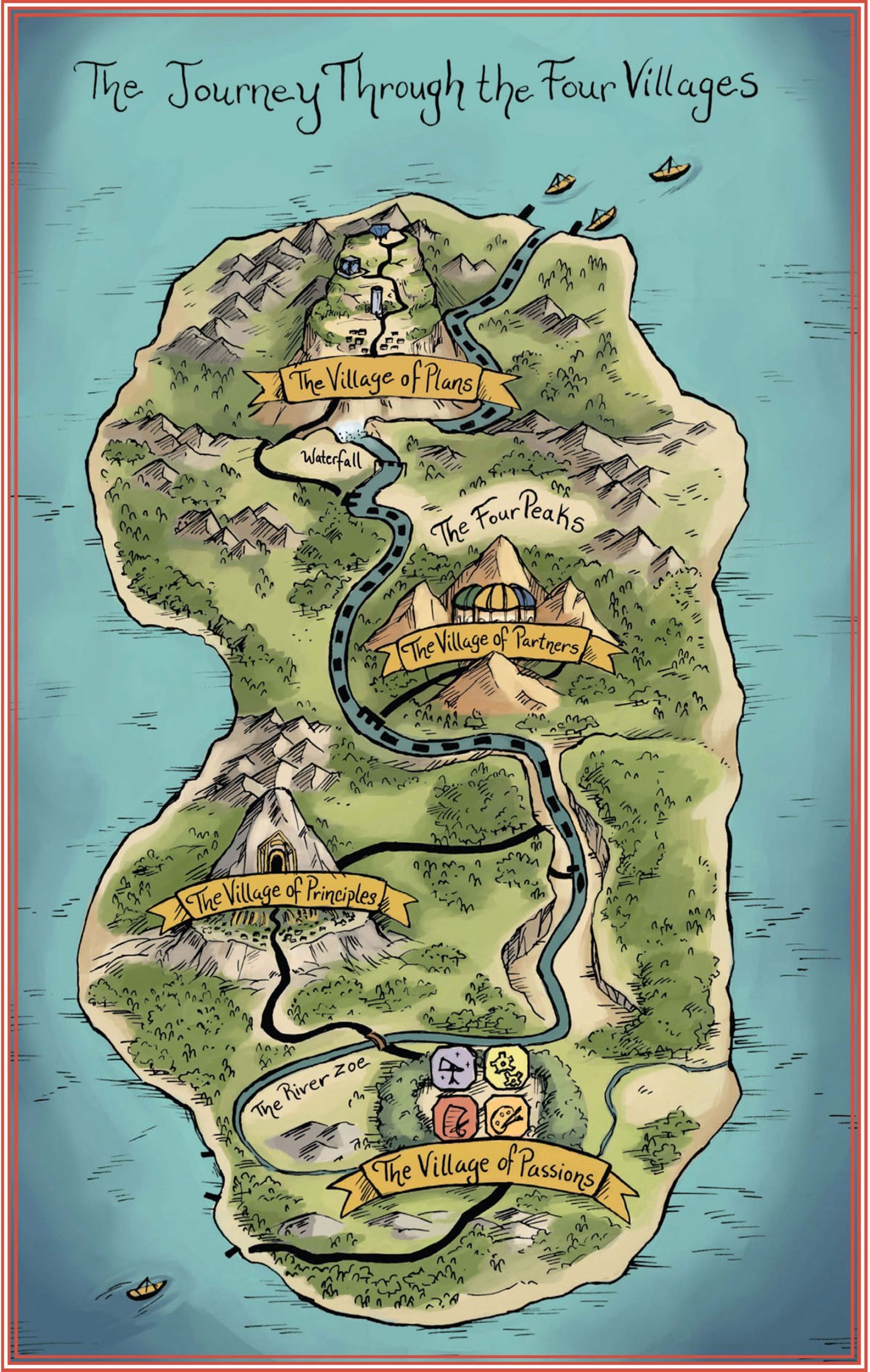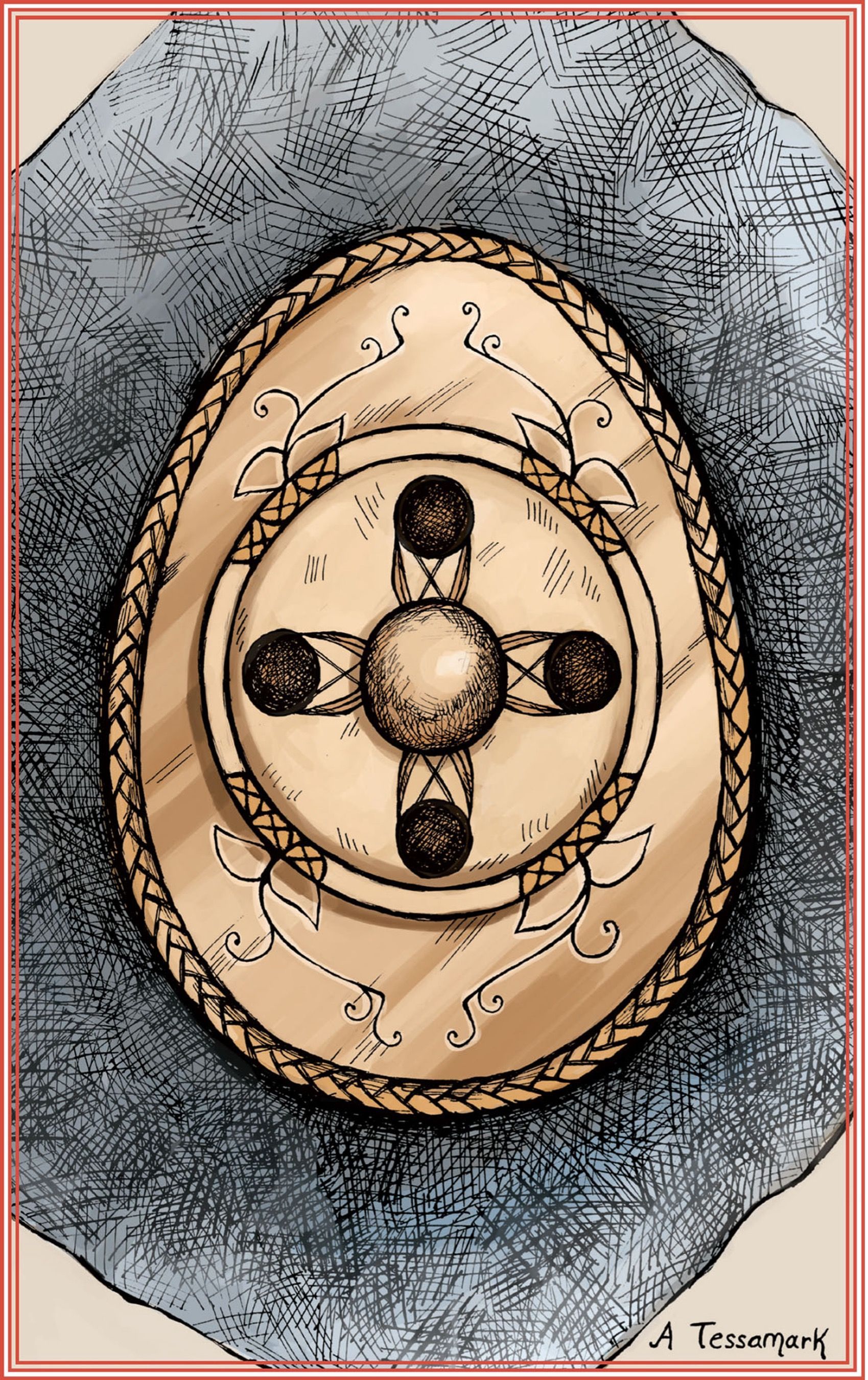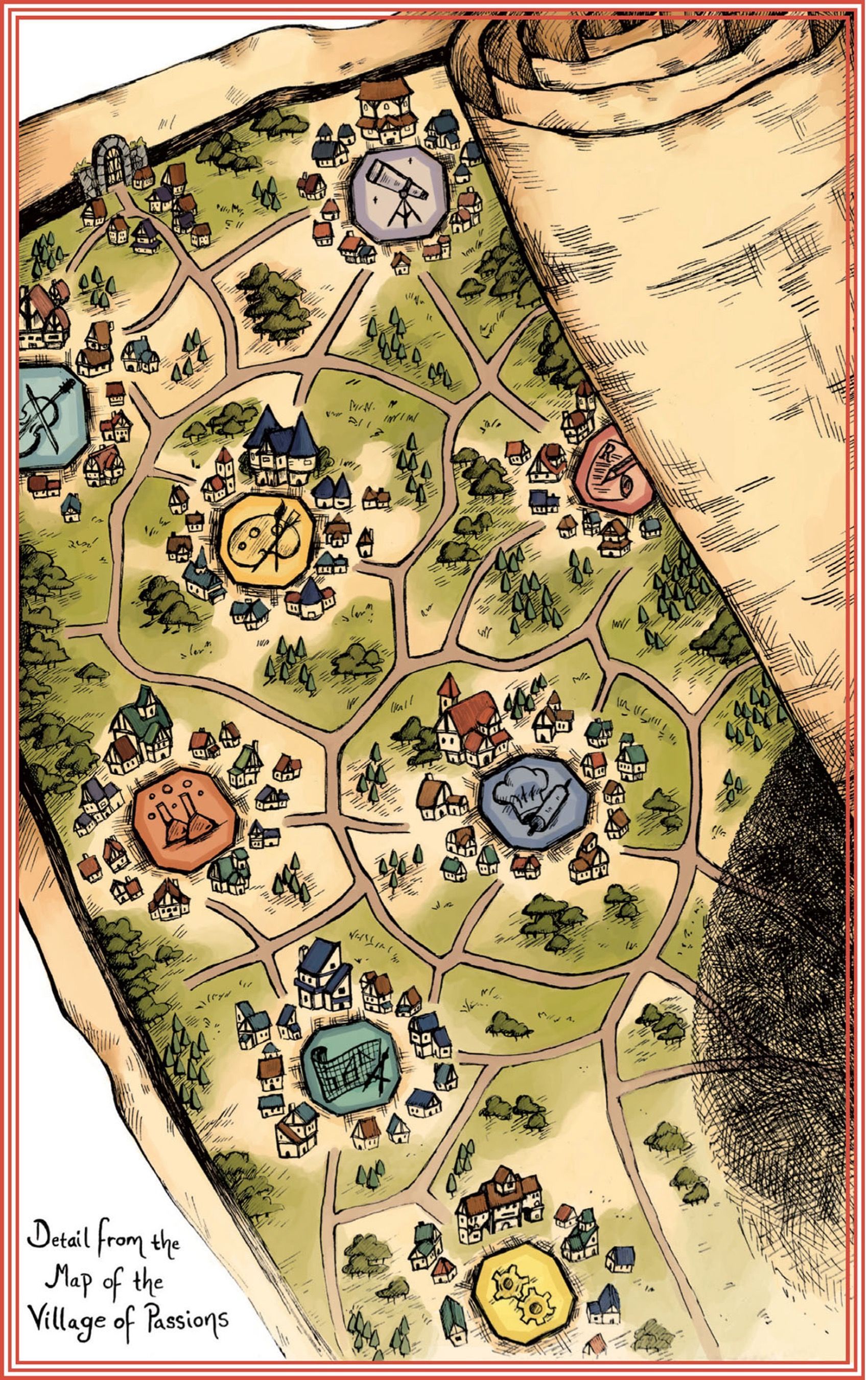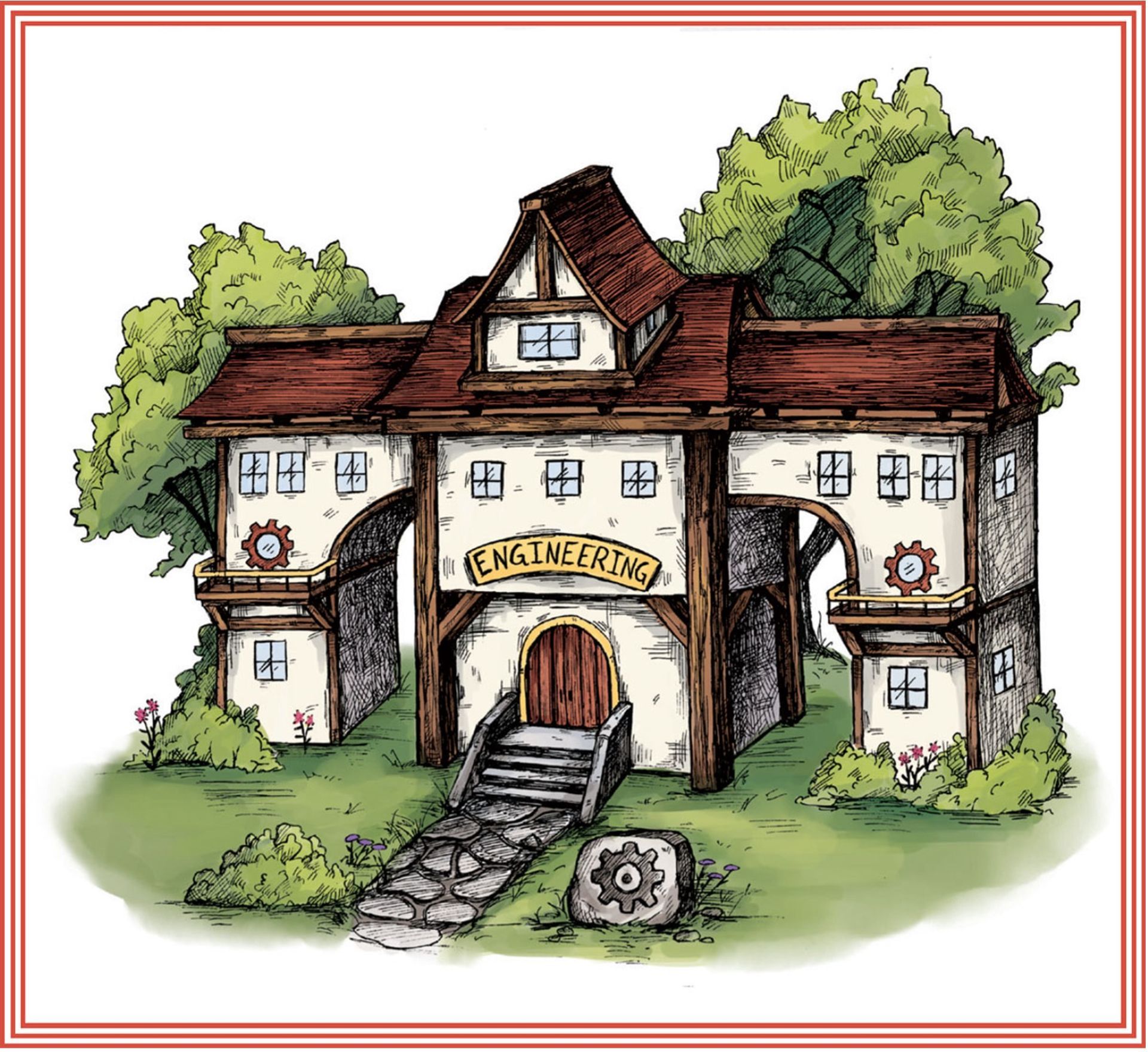Ed Hajim
Book Excerpt
THE ISLAND OF THE FOUR Ps
CHAPTER ONE
A QUEST BEGINS
A young man, Marketus, stood on the prow of a small boat. For several moments, he watched green tips of forested mountains rise slowly from the horizon. Then he called to the boat’s captain and navigator. “Look! I think we’re almost there.”
The captain glanced ahead with a smile, pleased by the enthusiasm in the young voyager’s voice. Turning to her partner, the navigator, she said, “It is an extraordinary view, isn’t it?”
“Yes,” the navigator replied, “and after all these years, I still remember the mix of emotions I felt when I first arrived. Excitement, energy, and a little fear.”
“It feels good, helping this young adventurer begin his own quest,” the captain said as Marketus joined them at the wheel. The three stood together and watched as the land appeared. First, a ridge of mountains surrounded by heavily forested hills. Then a thin ribbon of beach connecting forest and ocean.
Looking back over the distance they had crossed, Marketus saw many other boats spread across the waters behind them.


Most carried families accompanying other young voyagers. But Marketus’s sole companions were the captain and navigator. They’d recognized something special in him and generously offered to transport him to the The Island of the Four Ps.
Marketus knew that the other young voyagers all came from a wide variety of backgrounds. And once they reached their destination, each would embark on an individual quest, at his or her own pace. This would not be some kind of race.
“Though your paths may cross,” the navigator had said to Marketus, “you must undertake this quest independently. The lessons you learn must be your own.”
“However, that doesn’t mean you’ll be alone,” the captain noted. “We’ve arranged for someone to accompany you. His name is Archimedes.”
Marketus asked, “Wasn’t Archimedes the ancient Greek mathematician who invented ways to accomplish difficult things easily—like lifting heavy objects and pumping water from a deep well?”
“Exactly,” the navigator replied. “Like his Greek namesake, our Archimedes will give you tools to make your work easier and more effective. But you must make the effort yourself.”
______________
An hour later, Marketus stood alone on a gently sloping beach, carrying only a backpack, a compass, and a book. The captain and navigator waved a last goodbye and backed their boat away from the shore. They knew that when they saw Marketus again he would be transformed: a little wiser, more mature, and more confident about his future.
Marketus felt a twinge of regret about this parting, but he also felt the exhilaration that comes with new-found freedom. For the first time in his life, he held his destiny in his own hands. He was ready to explore the uncharted territory before him.
The mountains rose from the beach in fits and starts: forested hills led to valleys, then higher hills eventually rose to form a range of peaks. The forests were deep, broken now and then by fields of wild grasses, broad lakes, and swiftly flowing rivers.
Marketus wondered if he was destined to climb those peaks. What might lie beyond them? More important, where should he begin? He scanned the tree line ahead for a clear starting point. But everything appeared dark and a little foreboding.
Then a man emerged from the trees. Dressed in simple clothes, he had a satchel slung across his shoulders. The man walked into the sunlight and stopped, basking in the warmth. He wore the broad smile of someone returning to a well-loved spot. After a moment, he turned and walked directly toward Marketus.
“Hello, Marketus. My name is Archimedes,” he said.
“Hello,” Marketus replied. “The captain and navigator told me to expect you.” Then he asked, “Are you an inventor, too, like the other Archimedes?”
“Nowhere near as accomplished as he was, but I have invented this,” Archimedes said, taking from his satchel a small item wrapped in cloth, which he handed to Marketus.
Unwrapping it, Marketus found an oblong metal object. Depending on how the light struck it, it looked to be made of copper, silver, or gold. It was flat on top except for four deep indentations set around a raised circle. Rounded on the bottom, it fit easily in his palm.
“It is a tessares makhana,” Archimedes said. “In Greek, that means ‘a machine of four elements.’ But for simplicity, I just call it a Tessamark.”
“What’s it do?”
“At the moment, nothing. By the time we reach the other side of that mountain range, though, you will see what it can do. In fact, learning to use the Tessamark is key to your quest’s success. For now, put it your pocket and keep it safe.”
With that, he settled the satchel on his shoulder and gestured toward the trees. The two companions started walking.
At the tree line, Marketus paused to look back. Farther down the beach, a handful of boats were drawing away from land, each having deposited a lone voyager. “Will all those voyagers have a guide, too?” he asked.
“Unfortunately, no,” Archimedes answered. “Many will wander about fruitlessly and miss out on the knowledge this land offers.” Then he walked into the dense forest, and Marketus followed.
______________

As they walked, they fell easily into conversation—about Marketus’s life, his friends, the fact that he was an orphan, and his most memorable experiences. In the quiet moments in between, Marketus looked closely at the environment around them. From time to time, he used the compass to check their direction. But he soon realized it was purposeless. Although their first destination was, Archimedes said, due east of the beach, the winding trails hit all points of the compass. There were many intersecting and inviting paths, some of which they followed, some of which they walked past. Even after careful observation, Marketus couldn’t say what made the paths they followed the right ones.
Marketus was so engrossed in the journey and the conversation that he was surprised when Archimedes stopped and said, “Several hours have passed. It’s been a long day for you, and the sun will soon set. We’ll rest here for the night. You will want plenty of energy for tomorrow.”
Then he showed Marketus a nearby stream of crisp, clean water. He demonstrated how to create a comfortable sleeping place from the moss growing beside the path. Then he went to gather fruits and nuts from the surrounding trees for the next day’s breakfast.
When Archimedes returned, he opened the satchel full of newly gathered food and took from it a small loaf of bread and a triangle of sharp cheese. He and Marketus ate their dinner of bread, cheese, and ripe blackberries as the sun set.

By the time they’d finished, the forest was dark, lit only by a quarter moon and a sea of stars. Marketus lay down and studied the patterns in the sky.
“What do you find yourself thinking about?” Archimedes asked.
“How many paths there seem to be. Where they go. Where this quest will take me,” Marketus answered. He hesitated, then asked, “Are you going to stick around for my whole journey?”
“I will be with you long enough for you to become your own guide,” Archimedes said.
“I’m not sure what that means,” Marketus said.
Archimedes smiled but offered nothing more. So Marketus took the Tessamark from his pocket and absently ran his finger over the strange object while he thought about what might lie ahead.
Archimedes watched Marketus’s deep contemplation for a few minutes, then said, “Congratulations.”
“What for?”
“For discovering the first purpose of the Tessamark: reminding you to stop and think—to reflect on your experiences and the lessons they offer.”
“That doesn’t seem like such a big deal.”
“No, it doesn’t seem so,” replied Archimedes. “Where you come from, people want to do things as quickly as possible—even several things at once. They often believe that simple thought and reflection are a waste of time. But your quest will be much more useful if you occasionally take a break to contemplate your experiences and the world you are traveling through.”
Marketus indicated that he understood. A few minutes later, he dropped off to sleep.
THE VILLAGE OF PASSIONS
Marketus woke the next morning just as the sun broke the horizon. He felt refreshed, with a clear mind, ready to resume his journey. Archimedes laid out the remainder of the nuts and fruits he’d gathered the night before, and the two ate. Then they set off again, walking at a leisurely pace. After an hour, they reached a wooden bridge over a shallow stream. Archimedes pointed to the water and said, “That is the great River Zoe.”
Marketus laughed. “Your great river looks more like a nice little creek.”
Archimedes smiled. “True. I should have said that this stream becomes the great Zoe, the grand and challenging river that courses through the heart of this land.” He paused, then continued with quiet intensity. “Our journey will take us through the heart of this land, too. Along the way we will explore four villages. In each, you will be offered something of great value. Observe closely. Listen carefully. Take time to think about what you have seen and heard. Remember: the success of this quest—and of your many future journeys—depends on how well you use what is offered in these villages.”
“I will do my best,” Marketus replied.
“The entrance to the first village is just down this trail. Before we visit it, I have something for you.” Archimedes reached into his satchel and took out a small silk bag tied with gold thread, then handed it to Marketus. “Take care: what is inside is very small and very precious.”


Marketus opened the bag and stared at its contents. “A pea?” he asked. “A dried green pea?”
“No normal pea, I assure you,” Archimedes said. “Take out the Tessamark and carefully place the pea into the small indentation above the center.”
Marketus did as instructed, then gasped in surprise as the indentation closed tightly around the edge of the pea—which then looked like a glowing green pearl.
“I know you have questions, but for now,” Archimedes instructed, “place the Tessamark back in your pocket, and let us venture into the first village.”
Marketus did as Archimedes advised. “What is the name of this village?” he asked.
“It is called the Village of Passions.”
Marketus laughed. “The Village of Passions—where your wildest fantasies come true?”
“Sorry, no,” Archimedes replied. “Passions as in: What motivates you? What ideas and activities energize you?”
“That’s less enticing,” Marketus quipped.
“Nevertheless, how would you answer those questions?” Archimedes asked.
Marketus opened the bag and stared at its contents. “A pea?” he asked. “A dried green pea?”
“No normal pea, I assure you,” Archimedes said. “Take out the Tessamark and carefully place the pea into the small indentation above the center.”
Marketus did as instructed, then gasped in surprise as the indentation closed tightly around the edge of the pea—which then looked like a glowing green pearl.
“I know you have questions, but for now,” Archimedes instructed, “place the Tessamark back in your pocket, and let us venture into the first village.”
Marketus did as Archimedes advised. “What is the name of this village?” he asked.
“It is called the Village of Passions.”
Marketus laughed. “The Village of Passions—where your wildest fantasies come true?”
“Sorry, no,” Archimedes replied. “Passions as in: What motivates you? What ideas and activities energize you?”
“That’s less enticing,” Marketus quipped.
“Nevertheless, how would you answer those questions?” Archimedes asked.
Marketus considered. “There are lots of things I really like to do. I’ve never thought of them as passions.”
“Then we are in exactly the right place. For it is your true passions that will drive you forward in life. They will be the basis for goals you set. And the energy and determination you derive from them will enable you to overcome many obstacles and disappointments,” Archimedes said.
Then he and Marketus crossed the bridge and followed the path over a hill and around a bend. Before them stood a tall stone arch that marked the beginning of the Village of Passions. They stopped to admire the arch and the scenery around it.
Just then a woman emerged from an adjacent small building, smiling broadly when she saw the travelers. Archimedes smiled back.
“This is the Village Guide,” he told Marketus. “She will offer valuable advice as you begin your explorations.”

“It’s nice to meet you,” Marketus said.
“I’m glad to meet you, too,” she responded.
Then Marketus took a closer look at the arch. He noted that it was covered in detailed carvings, each representing an area of human activity or enterprise. There were symbols for almost every undertaking or occupation Marketus could think of. “Somebody certainly put a lot of time and energy into these carvings,” he observed.
“It’s how we do things here—with commitment and vigor,” said the Village Guide. “Are you a first-time visitor?”
“He is indeed,” Archimedes replied. “We wish to explore your village and observe the passions prevalent in its residents’ lives.”
“Allow me to give you a map to guide you,” the woman said. “The village is much larger than you might expect.” She ducked into the building, brought out a thick parchment, and unrolled what proved to be several yards of an intricately drawn map. She pointed out the village’s primary streets and lanes and some of its scenic spots.
Then she said to Marketus, “I suggest, young man, that on this first visit you skip the neighborhoods marked in blue ink.”
“Why?” Marketus asked.
“There are many kinds of passions,” the woman explained. “Those that are productive and constructive and those that are not. There are passions one controls and directs, and then there are those that are difficult to control, even addictive. As an ancient sage once said, ‘Some passions nurture and feed; some passions know only greed.’ The blue-ink neighborhoods are those where people pursue negative passions. Another time, when you have more knowledge and experience, you could visit those areas.”
All rights reserved.
